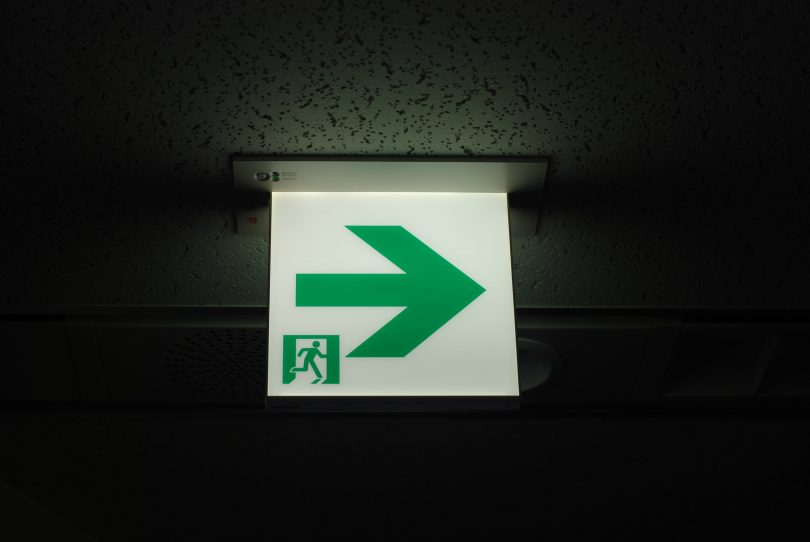Are you still happy with where you live? Proud of how your government has handled Covid-19? Satisfied to live in a country where freedoms of travel, shopping, or meetings have been curtailed in the quest to get to zero Covid? Eager to show your Covid “passport” to go to a bar to regain some freedoms in the “new normal?” Are you even in shock that your country has not yet required the unvaccinated to attach some kind of sign to their clothes to help you identify them from afar? Or do you abhor what your government has done in your country to beat Covid? Do you miss basic freedoms and think the world has gone crazy for a virus with low complications for a vast majority of people?
Whatever your stance, you have learned something about your country. You might be satisfied and feel even more content to live where you are. Alternatively, you might feel miserable, ready to leave at the first instance. Either way, your country’s response to Covid had revealed an inner truth about its values (whether if favors top-down rules and coercion or personal freedom), communication (whether it’s trustworthy), and effectiveness (How did the government deal with the crisis? What have been the results and consequences—good and bad—of its policies?)
Your Risk Assessment vs. Covid-19 Measures
What have you learned about yourself in relationship to your country since the virus appeared? I would argue that it all comes down to your personal risk profile and subjective assessment of risks compared to perceived benefits and the costs of the country’s response.
For one person, the risk of dying or having a hospital stay at, let’s say, a probability of 1.0 % (pick any number you deem to be the correct one, it does not matter here), means fear and the calling for heavy-handed government actions. Yet for the sister of this person, such a low probability is not meaningful and not worth lockdowns and other freedom-constraining government measures. In other words, two people can see the same numerical information, but draw different conclusions from it.
Your Risk Assessment vs. New Vaccines
Some people get every vaccination available from Hepatitis A to Yellow Fever, and are current with their immunization schedule. But some of these pro-vaxxers will not get the new mRNA or Vector vaccines unless forced to. On the other hand, some hard-core anti-vaxxers who believe in (disproven) autism theories related to the MMR shot could not wait to get a Covid vaccine. And then there is the vast majority who get required vaccines and got this one as well.
Are these choices consistent? I think so. Again, it’s about subjective risk assessment and decision making under uncertainty. Are the few reported cases of serious side effects irrelevant for you, and therefore won’t keep you from getting what seems to be a quite effective vaccine? Or do you fear any long-term side effects which, by definition, cannot be known yet and therefore cannot have a probability assigned to? If you are in the first camp, you might applaud New York City or France, as they are now making daily life for non-vaccinated people more difficult, if not hell. If you are in the second camp, you might have demonstrated on July 14 in Paris and waved a placard comparing the new French law of segregating the vaccinated and unvaccinated via health passes to what happened at the beginning of Germany’s dark past in the 1930s.
To Stay or to Move?
After almost 18 months of Covid in our lives, you probably have a strong opinion about all aspects of it. For most of us, Covid and Covid policies have impacted our lives, be it mentally, physically, materially, socially, or all of the above. It might lead to you reassessing the place where you live. City, suburbs, or countryside? Red state or blue state? Your country of residence or the dream country you always wanted to emigrate to?
If you are non-vaccinated in France now and feel the pressure, you might contemplate leaving. If you are vaccinated and believe in vaccine mandates, then you probably love the new health passes, feel happy, and want to stay on.
The same decision making might happen within the country you live in. If you live in Texas but love how California or Wisconsin have regulated life since March 2020, you might consider moving there. On the other side, as a Californian who is sick of wearing masks despite having gotten the vaccine, it might be time to leave LA and move to Tampa.
You have choices.
Will the Past Be a Prologue to the Future?
How did your local, regional/state, and national government behave and conduct its crisis management? How did the media report on it, your neighbors react to it, your schools/universities take care of their students and staff, and businesses help their communities? If another crisis hit, be it a natural disaster, civil unrest, or even war, would you be at ease where you live right now?
Outside of a crisis, we tend to focus on the upside of the place we live. We pick a location based on great job opportunities, access to education and healthcare, an amazing social and cultural life, and whatever attracts you personally to a particular country or city. If we think San Francisco provides more pleasure than Wichita Falls, then we might move there. But if San Francisco did not perform well during Covid in your eyes while Wichita Falls did, then maybe you stay put for now.
Takeaway
One thing Covid taught us is that we need to contemplate a location’s behavior in times of crisis. Having fun and enjoying opportunities is one thing; being stuck somewhere and mismanaged during a crisis quite another. Place your location bet(s) in your life accordingly!
© Michael Froehls – 2021 – All rights reserved







